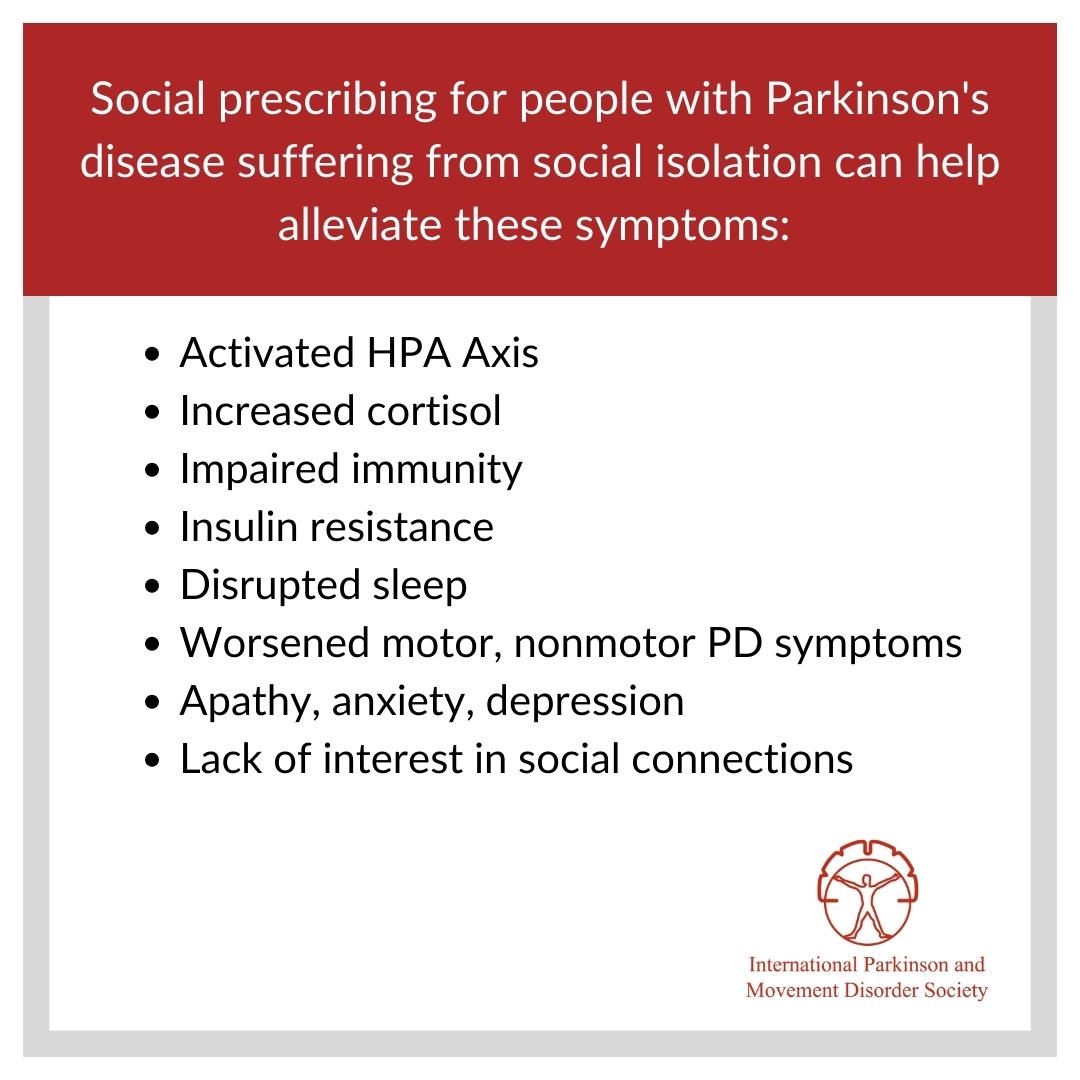 VOLUME 26, ISSUE 4 • DECEMBER 2022 Full issue »
VOLUME 26, ISSUE 4 • DECEMBER 2022 Full issue »

Social Prescribing in Parkinson's Disease
In our paper “Synergy of Pandemics- Social Isolation is Associated with Worsened Parkinson Severity and Quality of Life” published in NPJ Parkinson’s Disease in 2020, we highlighted the negative effects of loneliness in a cohort of people with Parkinson’s (PwP). The goal of this study was to survey individuals with PD to evaluate whether social isolation is associated with PD symptom severity and quality of life. The primary outcome measures were the Patient-Reported Outcomes in PD (PRO-PD) and questions from PROMIS Global related to social health. PRO-PD scores increased as social performance and social satisfaction scores diminished. Individuals that reported being lonely reported a 55% greater symptom severity (P<0.01). Individuals that documented having a lot of friends had 21% fewer symptoms (P<0.01) Social isolation was associated with greater patient-reported PD severity and lower quality of life, although it is unclear whether this is the cause and/or a consequence of the disease. In essence, the Parkinson pandemic and the pandemic of social isolation have been further compounded by the recent COVID-19 pandemic. The results emphasize the need to keep PwP socially connected and prevent loneliness in this time of social distancing. Proactive use of virtual modalities for support groups and social prescribing should be explored.
Some important things to highlight include:
-
In aging populations there have been comparisons in the literature of social isolation being as detrimental to health as smoking or obesity.

Researchers have identified three dimensions of loneliness reflecting the particular relationships that are missing:
-
Intimate, or emotional, loneliness is the yearning for a close confidante or emotional partner.
-
Relational, or social, loneliness is the longing for close friendships and social companionship.
-
Collective loneliness is the need for a network or community of people who share one’s sense of purpose and interests.
Loneliness can be felt if any one of these dimensions is not satisfied and hence it is possible to be happily married and still feel lonely.
Social prescribing is a novel concept in which clinicians recommend or prescribe resources or activities in the community to help patients develop healthy social connections. The Veteran’s Administration has recently created the “Compassionate Contact Corps Program” using volunteers to call veterans who are lonely and check in on them. Volunteering can help loneliness as well, and so it has been proposed that veterans can be paired up with each other to make such calls. The National Health Service in the United Kingdom have designed a link worker social prescribing program that was recently highlighted in a NEJM article, where they list referrals to group exercise classes, art-based therapies, volunteer opportunities, self-help groups for specific conditions and community activities such as gardening, cooking and befriending as examples of social interventions.

In the paper, we concluded that proactive screening of PwP using questions from the UCLA loneliness scale and then referral of lonely PwP to social support resources could be a possible intervention to help keep PwP socially connected during the pandemic and beyond. This study emphasizes the lack of attention paid to social determinants of health that have historically been neglected in PD.
Taking time to reflect on who we are not serving well and how we can do better has been an important consequence of this pandemic. Keeping PWP socially connected has been an exciting area around which to educate and empower our patients.
Read more Moving Along:






